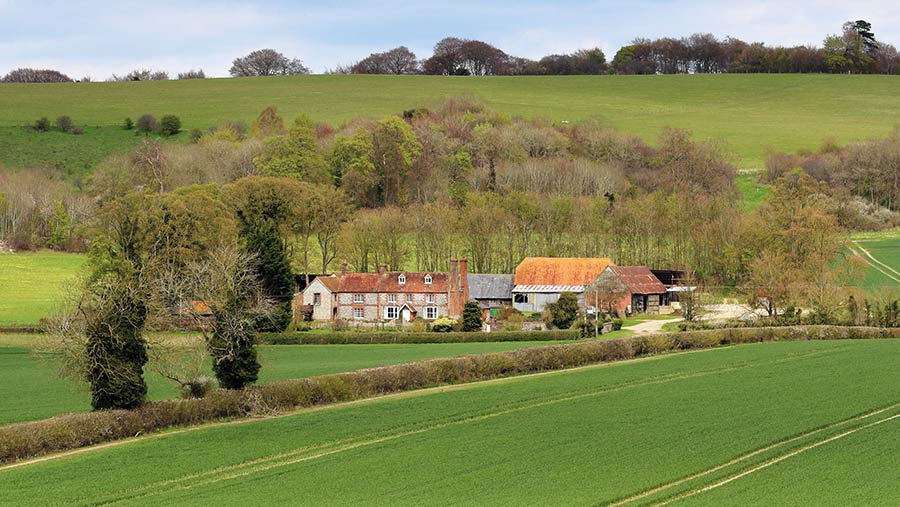Tax rules and relief for company-owned farmhouses worth over £500k
 © Chris Lofty/Adobe Stock
© Chris Lofty/Adobe Stock Farms that own valuable residential property in a limited company must pay an annual tax on that property or, in many cases, claim relief.
The Annual Tax on Enveloped Dwellings (Ated) was introduced in 2013 and applies to all companies owning an interest in a UK dwelling worth more than £500,000.
The tax payable is based on a valuation of the property at fixed five-yearly revaluation dates, set by HMRC.
See also: HMRC investigations – how they arise and how to handle them
While most farms still operate either as a sole trader or a partnership, low corporation tax rates and other considerations have led to a move to company structure in recent years and some may not be aware of the tax, say advisers.
In addition, rising property values over the past few years mean that houses which were not previously subject to the tax will now be within its net.
Farm properties may qualify for one of several reliefs from this charge. However, these must be claimed every year on a relief declaration return designed for farmhouses.
Revaluation needed
All property that does not qualify for relief must have been revalued as at 1 April 2022 to establish what the annual Ated charge will be for the April 2023 return.
That revaluation figure is then used annually until the next revaluation date in five years’ time.
Tom Lockton, rural valuer with Strutt & Parker, says: “Several reliefs of up to 100% are available, including for residential property let to third parties on a commercial basis and dwellings occupied by farmworkers, but many farms and estates own property that fall outside of the reliefs and will need to be revalued.
“Significant house price growth has also occurred since the last revaluation date five years ago [1 April 2017], which means that many properties that previously fell below the £500,000 threshold, may now be caught by the tax.”
Annual charge
The annual charge for properties valued between £1m and £2m is £7,700, which is broadly double the £3,800 charged on properties valued between £500,000 and £1m.
“This highlights the importance of a reliable, up-to-date professional valuation – especially if the value falls close to the cusp of the bands – as it could result in significant savings over the next five years, while also protecting against penalties being incurred for undervaluing,” says Mr Lockton.
Ated chargeable amounts for 1 April 2022 to 31 March 2023 |
|
|
Property value |
Annual charge |
|
More than £500,000 up to £1m |
£3,800 |
|
More than £1m up to £2m |
£7,700 |
|
More than £2m up to £5m |
£26,050 |
|
More than £5m up to £10m |
£60,900 |
|
More than £10m up to £20m |
£122,250 |
|
More than £20m |
£244,750 |
Ated advice
- The main advice is to contact your accountant and consider a revaluation to April 2021
- Some businesses have the main farmhouse within the company, but quite often people keep those occupied by directors outside the company, due to benefit in kind and possible IHT issues
- If a farmhouse is lived in by a director of the company and a market rent is not paid, then potentially Ated is payable
- If the farmhouse is lived in by an employee who works for the company then there is no Ated
- AETD may be payable because you have a partnership, but the partnership includes a corporate entity.
